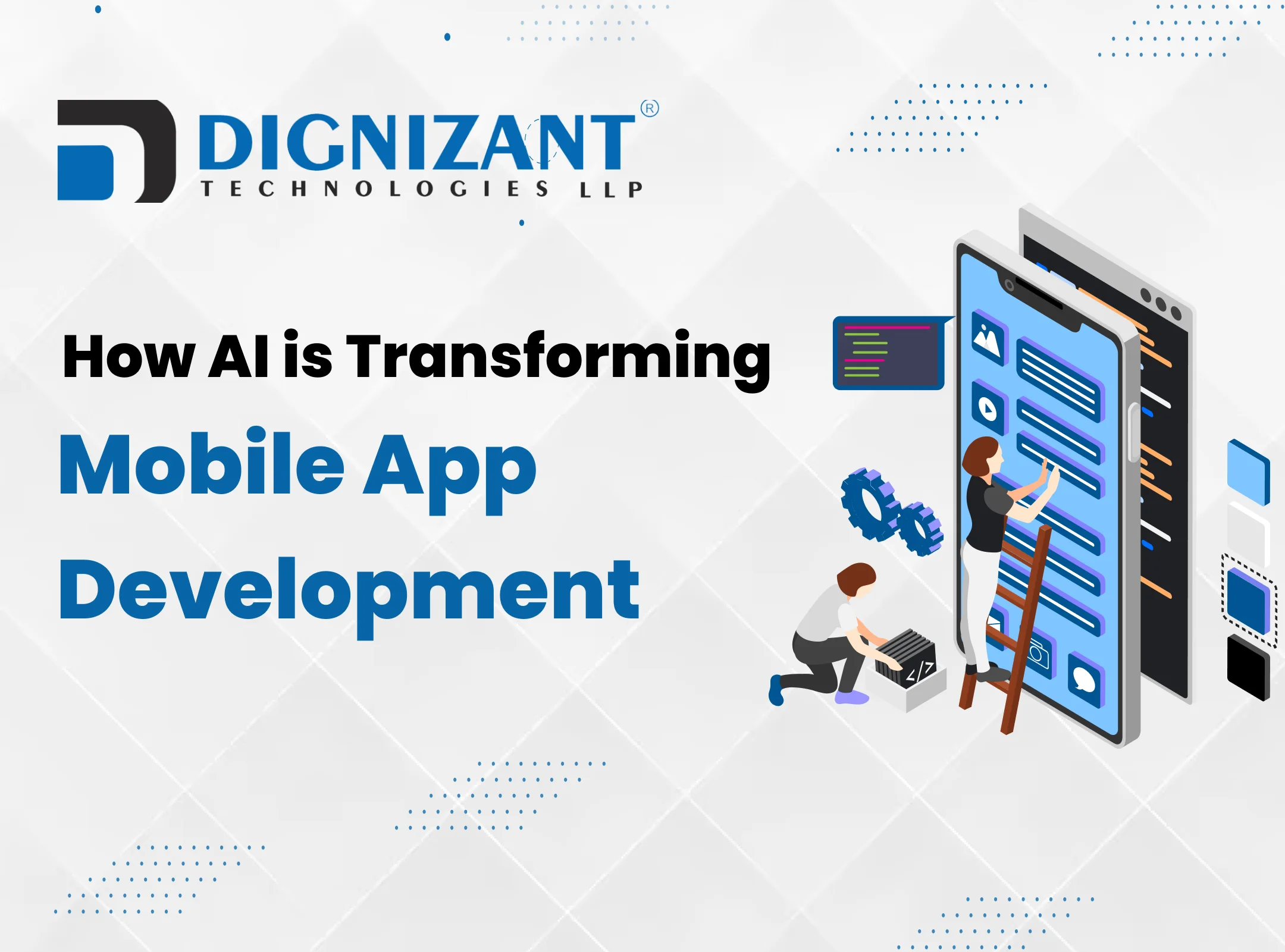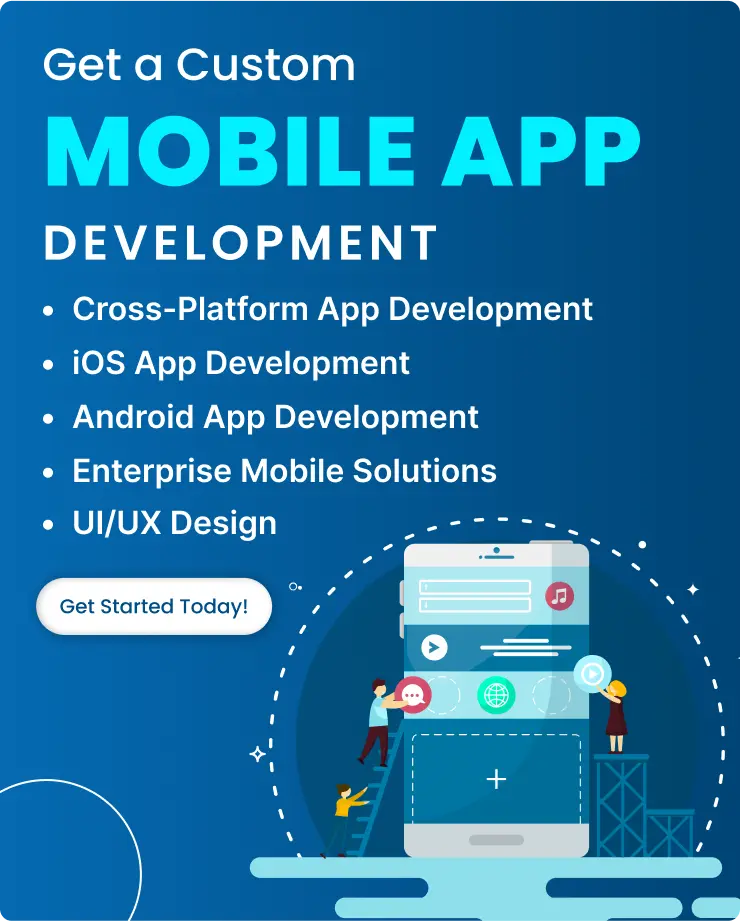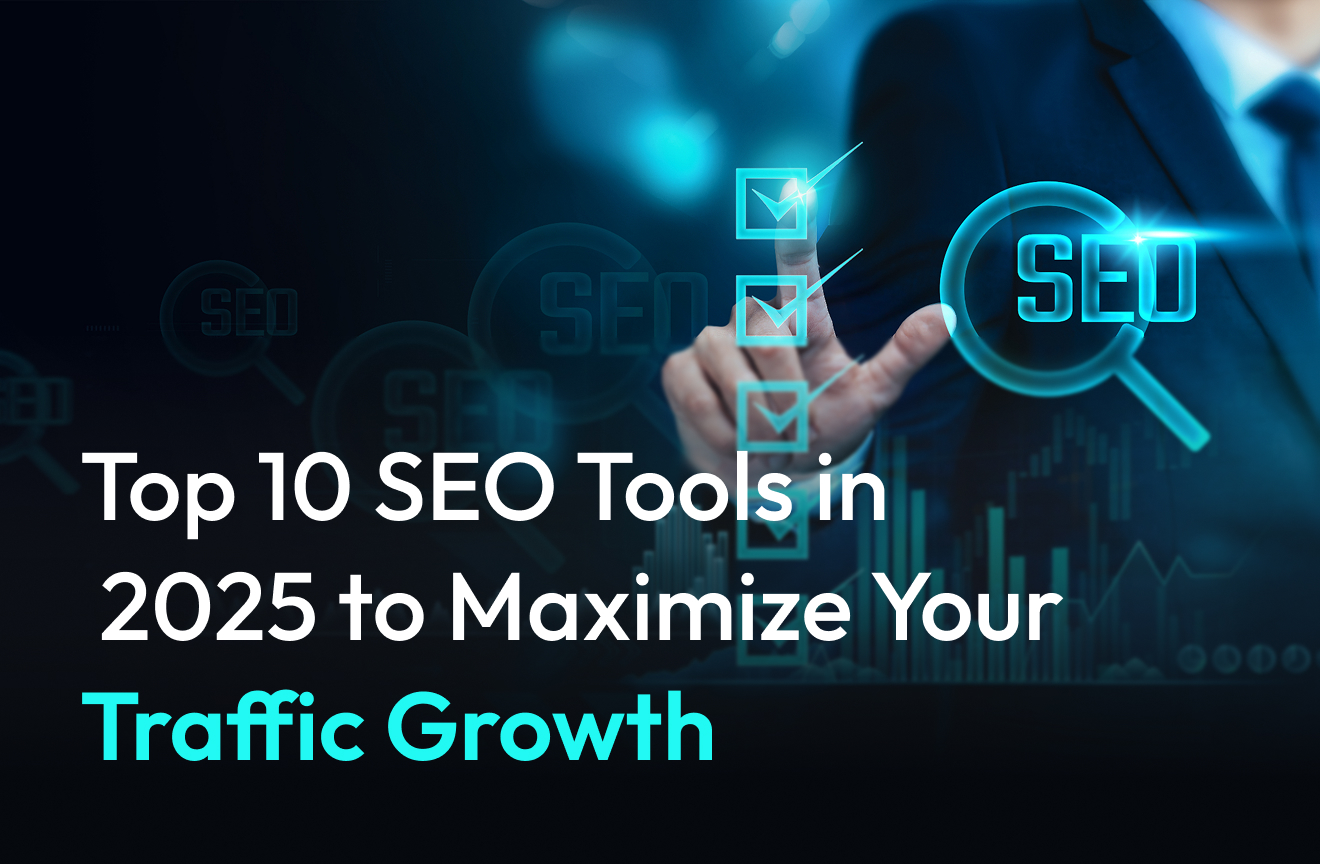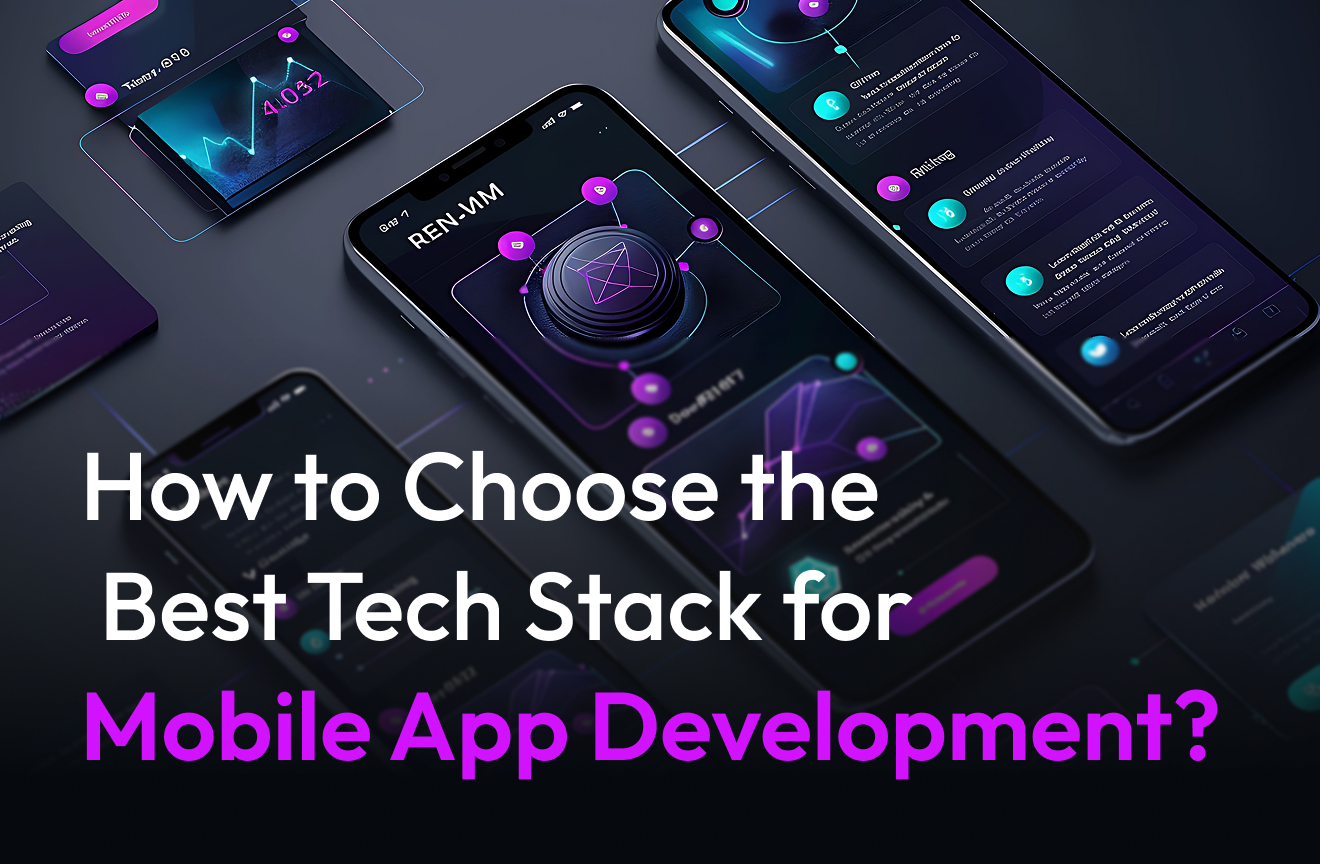The world of mobile app development is changing fast, thanks to the rise of Artificial Intelligence (AI). This technology is not just a passing trend; it’s transforming how apps are made and used. AI is making apps smarter and more responsive to user needs. For example, AI can analyze how you use an app and suggest content that you might like, making the app feel more personal and engaging.
It can also automate tedious parts of the app development process, helping developers work more efficiently and reducing the chance of errors. This means apps can be built faster and often with better quality. In a market where staying ahead is crucial, these benefits are invaluable for any mobile app development company.
AI isn’t just about making things a bit better; it’s about changing the game entirely. Imagine having an app that understands your preferences, offers real-time support through chatbots, and keeps your data safe with advanced security features. That’s what AI brings to the table. It can even predict what you might need next, like suggesting a workout plan based on your recent activity or recommending a new product based on your shopping habits. These AI-driven features make apps more helpful and enjoyable to use.
As we explore how AI is transforming mobile app development, it’s clear that this technology is becoming a core part of the industry. For businesses and developers, embracing AI is key to creating top-notch apps that meet the ever-growing expectations of users. Understanding and leveraging AI’s potential is essential for any mobile app development company aiming to deliver cutting-edge, efficient, and user-centric applications.
Mobile App Development Trends with AI
AI is transforming mobile app development, bringing in fresh and exciting trends that are making apps smarter and more user-friendly. Here are some of the key trends:
Personalized User Experiences
One of the coolest things AI is doing is making apps feel like they were made just for you. By looking at how you use an app and what you like, AI can suggest things you might enjoy. For example, if you’re using a streaming app like Netflix, it will recommend movies and shows based on what you’ve watched before. Shopping apps do the same by suggesting products you might be interested in. This personalized touch makes apps more engaging and keeps users coming back for more.
Predictive Analytics
Predictive analytics is another game-changer. This AI technology helps apps anticipate what you might need or want next. For instance, a fitness app can suggest workouts based on your past activities, or a travel app can recommend destinations based on your previous trips. This kind of smart prediction makes apps more helpful and intuitive, enhancing the overall user experience.
Enhanced Security
AI is also boosting app security. It can detect unusual activity and potential threats in real-time, helping to prevent fraud and protect your data. For example, AI can spot if someone is trying to access your account without permission. Apps are also using AI for features like facial recognition and fingerprint scanning, which add an extra layer of security to keep your information safe.
Natural Language Processing (NLP)
NLP is making it easier for apps to understand and interact with you. This technology is crucial for virtual assistants like Siri or customer service chatbots. With NLP, these assistants can understand your questions and provide accurate answers, making your interactions with apps smoother and more natural.
Automated Development Processes
AI is even changing how apps are made. Automated coding tools and AI-driven project management software help developers write better code, find and fix bugs, and manage tasks more efficiently. This speeds up the development process and helps developers focus on more complex and creative aspects of app creation.
Augmented Reality (AR) and Virtual Reality (VR)
AI is enhancing AR and VR experiences, making them more immersive and interactive. These technologies are not just for gaming anymore; they’re being used in education, retail, and real estate too. For example, AR can let you try on clothes virtually, and VR can give you a virtual tour of a property. AI makes these experiences more realistic and engaging.
Benefits of AI in Mobile App Development
The incorporation of AI in mobile app development services brings numerous benefits that enhance both the development process and the end product.
Improved User Engagement
With AI, apps can analyze how users interact and offer insights to make the experience better. This means recommending content, products, or services that users are more likely to enjoy. By personalizing the experience, AI keeps users engaged and coming back for more.
Efficiency and Productivity
AI automates repetitive tasks in app development, allowing developers to focus on more creative and challenging aspects. This boosts productivity, speeds up the development process, and reduces the chance of errors. Ultimately, it means getting better apps out faster.
Cost Reduction
By streamlining development processes and automating tasks, AI helps cut down on development costs. This is especially beneficial for smaller businesses or startups looking to develop high-quality apps without breaking the pocket.
Better Decision Making
AI provides insights and data that help in making informed decisions throughout the development process. Whether it’s prioritizing features, designing user interfaces, or optimizing performance, AI ensures decisions are based on data rather than guesswork.
Scalability
AI-powered apps can handle large volumes of data and users efficiently, scaling up as needed without sacrificing performance. This scalability is crucial for apps experiencing rapid growth or serving a large user base.
How AI is Changing the Mobile App Industry
AI is revolutionizing the mobile app industry, making apps smarter and more intuitive than ever before. At the heart of this transformation is AI’s ability to understand and adapt to user behavior, creating personalized experiences that feel tailor-made for each individual. Whether it’s suggesting your next favorite song or predicting the products you’ll love, AI is turning apps into personalized assistants that anticipate your needs.
But Artificial Intelligence isn’t just improving the user experience; it’s also streamlining the development process. By automating repetitive tasks and providing valuable insights, AI is helping developers work more efficiently and deliver updates faster. This means we get new features and improvements to our favorite apps quicker than ever before, keeping us engaged and excited to see what’s next.
On top of that, AI is strengthening security in Android and iOS development, keeping our data safe from cyber threats. With AI-powered algorithms detecting and preventing potential risks in real-time, users can feel more confident knowing that their information is protected. Additionally, features like facial recognition add an extra layer of security, allowing easy access to apps while keeping unwanted intruders out.
Use Cases of AI in Mobile Apps
Certainly! Here are some examples of how AI is used in mobile apps:
E-commerce Apps:
AI powers personalized recommendations based on user behavior and preferences. It can analyze browsing history, purchase patterns, and demographic information to suggest products that are most relevant to individual users. Additionally, AI-driven chatbots assist users with product queries, provide real-time support, and streamline the shopping experience.
Healthcare Apps:
AI algorithms are employed for various healthcare purposes, such as diagnosis, treatment planning, and patient monitoring. For instance, AI-enabled apps can analyze symptoms reported by users and offer preliminary diagnoses or recommend appropriate medical actions. They can also track vital signs through wearable devices and alert users or healthcare providers in case of abnormalities.
Finance Apps:
AI plays a crucial role in enhancing the security and functionality of finance apps. It enables fraud detection by analyzing transaction patterns and identifying suspicious activities in real-time. Moreover, AI-driven financial advisors provide personalized recommendations for investment strategies, budgeting, and saving goals based on individual financial profiles and objectives.
Social Media Apps:
AI algorithms are utilized in social media platforms for content moderation, user engagement, and personalization. These algorithms analyze user interactions, preferences, and content to tailor the news feed and suggest relevant posts, stories, or ads. Furthermore, AI-powered moderation tools help identify and filter out inappropriate or harmful content, ensuring a safer and more enjoyable experience for users.
Travel Apps:
AI enhances the functionality of travel apps by offering personalized recommendations, dynamic pricing, and virtual assistance. For example, AI algorithms analyze travel preferences, past bookings, and user reviews to suggest customized travel itineraries, accommodations, and activities. Additionally, AI-driven chatbots provide instant support for booking inquiries, travel updates, and itinerary modifications, enhancing the overall travel experience.
These are just a few examples of how AI is revolutionizing mobile app functionalities across various industries, providing users with smarter, more efficient, and personalized experiences
Best Practices for Integrating AI in Mobile Apps
Successfully integrating AI into mobile apps requires careful planning and execution. Here are some best practices to ensure your AI-enhanced app delivers value and performs well:
Define Clear Objectives
Clearly outline the goals for integrating AI. Determine what specific problems AI will solve or what improvements it will bring to the app. This helps in aligning the AI features with the overall app strategy and ensures a focused development process.
Data Quality Assurance
High-quality data is crucial for training accurate AI models. Ensure that the data you use is clean, relevant, and representative of your target user base. This may involve data cleaning, preprocessing, and validation steps to remove any inconsistencies or biases.
Protect User Privacy
Implement robust data privacy measures to protect user information. This includes anonymizing data, using encryption, and obtaining user consent for data collection and usage. Compliance with data protection regulations such as GDPR or CCPA is also essential to maintain user trust and avoid legal issues.
Scalability Considerations
Design your AI systems to scale efficiently with the growth of your app. As your user base expands, the AI infrastructure should be capable of handling increased data volume and processing demands. This may involve using cloud-based solutions and scalable architectures to ensure seamless performance.
Implement Continuous Learning
AI models need regular updates to stay relevant and accurate. Implement mechanisms for continuous learning, where models are periodically retrained with new data. This helps in adapting to changing user behaviors and improving the app’s performance over time.
By following these best practices, you can effectively integrate AI into your mobile app, delivering enhanced functionality, improved user experiences, and maintaining high standards of performance and security.
Challenges of Using AI in Mobile App Development
While AI offers numerous benefits for mobile app development, integrating it into applications also presents several challenges. Here are some of the key challenges developers face:
Data Privacy and Security
AI systems require vast amounts of data to function effectively. Ensuring the privacy and security of this data is a significant challenge. Developers must implement stringent data protection measures to safeguard user information, comply with regulations like GDPR and CCPA, and maintain user trust.
Complexity and Cost
Developing and maintaining AI models can be complex and costly. AI projects require specialized expertise in machine learning and data science, which can be expensive to hire or train. Additionally, the computational resources needed for training and deploying AI models can add to the overall cost.
Integration with Existing Systems
Integrating AI into existing mobile apps and systems can be technically challenging. It requires ensuring compatibility with the app’s architecture, maintaining performance, and avoiding disruptions to existing functionalities. Seamless integration is necessary to provide a smooth user experience.
Technical Expertise
AI integration demands a high level of technical expertise in areas such as machine learning, data science, and software engineering. The scarcity of skilled professionals in these fields can make it difficult for companies to find the right talent to develop and maintain AI-powered mobile apps.
Continuous Learning and Updating
AI models need to be updated regularly with new data to remain accurate and relevant. Implementing continuous learning mechanisms can be challenging, as it requires robust infrastructure for data collection, model retraining, and deployment without disrupting the app’s functionality.
By understanding and addressing these challenges, developers can more effectively integrate AI into mobile apps, leveraging its potential while mitigating risks and ensuring a positive user experience.
Conclusion
AI is undeniably transforming the landscape of mobile app development. From enhancing user experiences and improving security to optimizing development processes and enabling new functionalities, the impact of AI is profound and far-reaching. As technology continues to evolve, we can expect even more innovative and intelligent mobile apps that cater to the ever-growing demands of users worldwide. For mobile app development companies and developers, embracing AI is not just an option but a necessity to stay competitive and deliver exceptional mobile experiences.
Frequently Asked Questions (FAQ)
How can a mobile app development company benefit from AI?
A mobile app development company can benefit from AI by streamlining development processes, enhancing app functionality, improving user engagement, and reducing costs. AI-driven tools can automate repetitive tasks, provide valuable insights, and enable the creation of more personalized and efficient apps.
What challenges do developers face when integrating AI into mobile apps?
Mobile app developers face challenges such as ensuring data privacy and security, managing high development costs, handling the complexity of AI integration, addressing potential performance issues, and ensuring ethical and unbiased AI models. For this, you can hire mobile app developers from Dignizant who will help you in integrating your mobile app with AI.
How does AI improve mobile app user experience?
AI enhances user experience by personalizing content, making intelligent recommendations, and automating routine tasks, which makes apps more engaging and user-friendly.
What is the future of AI in mobile app development?
The future includes more advanced personalization, greater automation, enhanced AR and VR applications, better IoT integration, and a focus on developing ethical AI to ensure fairness and transparency.

Stay Up to Date
Get our newsletter

Table of Contents
Toggle



